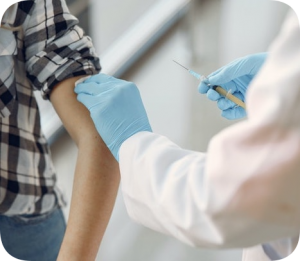 Although the U.S. is averaging nearly 2 million Covid-19 vaccinations per day, the rate has certainly slowed down since last month’s daily average of 3.3 million vaccinations. 60 percent of the population has received at least one dose, but that still leaves tens of millions more who need to get their shots before the country hits herd immunity. According to a recent survey, worries about taking time off of work is one of the major reasons why many Americans have been unwilling or unable to get vaccinated.
Although the U.S. is averaging nearly 2 million Covid-19 vaccinations per day, the rate has certainly slowed down since last month’s daily average of 3.3 million vaccinations. 60 percent of the population has received at least one dose, but that still leaves tens of millions more who need to get their shots before the country hits herd immunity. According to a recent survey, worries about taking time off of work is one of the major reasons why many Americans have been unwilling or unable to get vaccinated.
The same study shows that this group could be persuaded to get their shots if their employers provide bonuses or paid time off to do so. This seems to be the route that an increasing number of companies are taking, with one survey from Arizona State University finding that 59 percent of firms planned to provide vaccination incentives to staff. “It’s not going to be one size fits all. It’s going to depend on which industry you’re in, the make-up of your [worker] population,” said Magda Rusinowski of the Business Group on Health. “I do think the various forms of incentives will start to pick up.”
Amazon, for instance, has set up on-site clinics and given $80 bonuses to employees who show proof of vaccination. The grocery chain Alberstons is paying out $100 to vaccinated employees while the defense contractor Raytheon is offering $200. Employees of the retailer Target can receive free Uber or Lyft rides to their vaccination appointments while McDonald’s and Walmart are providing paid time off. If the rate of Covid-19 vaccinations in the U.S. continues to slow, experts expect that employer incentives could play an even bigger role in getting the country to herd immunity.
Questions:
- Why are some companies providing incentives to their employees to get vaccinated?
- What sort of vaccination incentives are major companies offering to their employees? Do you think firms should be doing more to encourage vaccinations among their staff and the general public?
